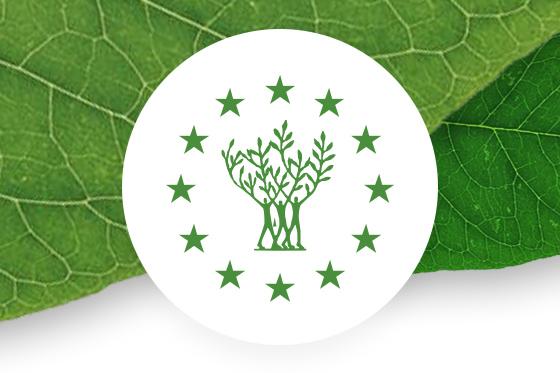Europe is an urban society with many environmental challenges to face. The European Commission has long recognised the important role that local authorities play in improving the environment, and their high level of commitment to genuine progress.
The European Green Capital and European Green Leaf Awards have been conceived as an initiative to promote and reward these efforts.
The Awards participate in the amplification of green actions in European cities and thus joins most ambitions of the European Green Deal, the New European Bauhaus and the Zero Pollution Action Plan.

Background
The European Green Capital Award is the result of an initiative taken by 15 European cities (Tallinn, Helsinki, Riga, Vilnius, Berlin, Warsaw, Madrid, Ljubljana, Prague, Vienna, Kiel, Kotka, Dartford, Tartu & Glasgow) and the Association of Estonian cities on 15 May 2006 in Tallinn, Estonia.
Their green vision was translated into a joint Memorandum of Understanding establishing an Award to recognise cities that are leading the way with environmentally friendly urban living. The initiative was launched by the European Commission in 2008.
The European Green Leaf Award was born out of the success of the European Green Capital Award and the need to recognise cities of a smaller size in 2015. The competition is open to all towns and cities across Europe with a population of 20,000 and up to 100,000 inhabitants.
The overarching message that the Awards scheme aims to communicate to the local level is that Europeans have a right to live in healthy urban areas. Cities should therefore strive to improve the quality of life of their citizens and reduce their impact on the global environment.
Annual Awards Process
One European city is selected each year as the European Green Capital of the year. Up to two cities per year are selected as European Green Leaf.
The Awards are given to cities that:
- Have a consistent record of achieving high environmental standards and provides them with public recognition;
- Are committed to ongoing and ambitious goals for further environmental improvement and sustainable development;
- Can act as a role model to inspire other cities and promote best practices to all other European cities.
Benefits of being a European Green Capital City
Being a European Green Capital brings many benefits long after the designated ‘winner’ year ends. Some of the city specific benefits of our previous winners are detailed below:
- Positive media coverage
- Increase in international profile, networking and new alliances
- New possibilities – green capitals have successfully exported their green products, processes and services
- More emphasis on environmental projects through sponsorship
- Momentum to continue improving environmental sustainability
- Boost in local pride and feeling of belonging
- Participation in the European Green Capital Network
- Organisation of national and international events (Opening Ceremony, Jury Meeting, EU Green Capital Award Ceremony for both awards and Network Meetings etc.)
- Attendance at prestigious international events (EU Green Week, Handover Ceremonies etc.)
Support in terms of event and communication management is provided throughout the year by DG Environment and the EU Green Capital Secretariat.
EU Green Capital Network
During its European Green Capital Award-winning year in 2014, the city of Copenhagen created the concept of the European Green Capital Network, exclusively dedicated to the previous winners and finalists of the Award.
The Network members’ political commitment to put sustainability at the heart of local policies makes them strong advocates for impactful sustainable urban development in Europe. To this end, members of the Network do not only debate on best practices, challenges and potential solutions between each other, but they also encourage other European cities on their paths towards a more sustainable future by providing guidance and support.
The Network is chaired by the European Commission in close cooperation with the laureate city of the running year and automatically expands with each European Green Capital cycle.
All previous winners and finalists of the European Green Capital Award are eligible to become members of the network, contributing to and benefitting from the collective knowledge.
To this day, the Network counts 36 members, as follows: Amsterdam, Barcelona, Bristol, Brussels, Cagliari, Copenhagen, Dijon, Essen, Frankfurt, Freiburg, Ghent, Glasgow, Grenoble, Hamburg, Helsingborg, ‘s-Hertogenbosch, Krakow, Lahti, Lille, Lisbon, Ljubljana, Malmö, Münster, Nantes, Nijmegen, Nürnberg, Oslo, Reykjavik, Sofia, Stockholm, Strasbourg, Tallinn, Turin, Umeå, Valencia, and Vitoria-Gasteiz.
EU Green Leaf Network
The European Green Leaf Network (EGLN) is a network of past and present European Green Leaf winners and those shortlisted for the Award. To this day, 23 cities have joined the Network: Bistriţa, Cornellà de Llobregat, Elsinore, Gabrovo, Galway, Gavà, Horst aan de Maas, Joensuu, Lappeenranta, Leuven, Limerick, Ludwigsburg, Mechelen, Mikkeli, Mollet del Vallès, Nyborg, Ringkøbing-Skjern, Torres Vedras, Treviso, Valongo, Växjö, Velenje and Winterswijk.
The European Green Leaf Network provides its members with the opportunity to collaborate and exchange ideas and experiences with colleagues from other city administrations who have a similar high level of ambition and commitment to the environment.
The goals of the EGLN are outlined as follows:
- Branding – to assist Network members to gain additional visibility and have the opportunity to showcase best practices
- Collaboration and knowledge sharing
- Sharing of information and experiences with DG Environment
- Undertaking shared initiatives
Toolkits
Click on the below button to find various toolkits that will provide you with various examples and ideas about how your city can manage waste, reduce energy demand, become more resilient and more!
